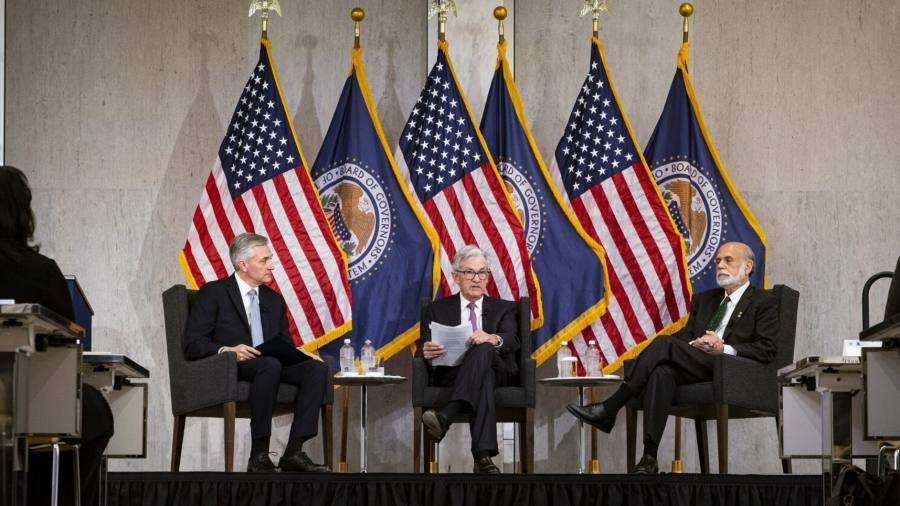The chair of the Federal Reserve says that the credit crunch expected in the aftermath of recent bank failures may limit how much the US central bank will need to raise its benchmark interest rate, as officials weigh the need to forgo further tightening.
Jay Powell on Friday highlighted the potential fallout from the failures of Silicon Valley Bank and other lenders and emphasised the high degree of uncertainty clouding the economic outlook.
“While financial stability tools help to calm conditions in the banking sector, developments there, on the other hand, are contributing to tighter credit conditions and are likely to weigh on economic growth, hiring and inflation,” he said at a conference organised by the Fed in Washington. “As a result, our policy rate may not need to rise as much as it would have otherwise to achieve our goals.”
He added that the extent of the effect on credit conditions was “highly uncertain”.
Powell’s comments come as Fed policymakers debate whether to press ahead with an 11th straight rate rise at a meeting next month or pause their campaign of tightening monetary policy to fight persistent inflation.
Since March 2022, the Fed has raised its benchmark policy rate by more than 5 percentage points to a target range of 5-5.25 per cent — an increase that Powell on Friday framed as notable.
“We’ve come a long way in policy tightening . . . we face uncertainty about the lagged effects of our tightening so far and about the extent of credit tightening from these banking stresses,” he said.
Powell separately added that the Fed could “afford to look at the data” before deciding on further rate rises.
That echoed a message sent during the Fed’s last meeting, which was interpreted by economists as support for an imminent pause. Powell on Friday said no decision had yet been made for the June meeting. As chair, he will be tasked with unifying what appears to be a divided group of officials, with several policymakers recently raising doubts that the Fed had raised its policy rate enough to get inflation under control.
Lorie Logan, president of the Federal Reserve Bank of Dallas and a voting member on the Federal Open Market Committee, on Thursday said there was not yet convincing evidence for a pause.
Speaking with the Financial Times, James Bullard, president of the St Louis Fed, said on Thursday that slow progress on the inflation front “may warrant taking out some insurance by raising rates somewhat more to make sure that we really do get inflation under control”.
Also on Friday, John Williams, president of the New York Fed, warned that despite the coronavirus pandemic and the recent surge of inflation, central banks were most likely to have to grapple with low interest rates once the shocks pass.
“There is no evidence that the era of very low natural rates of interest has ended,” he said, referring to a level of rates that neither stimulates nor restrains growth.
Read the full article here




